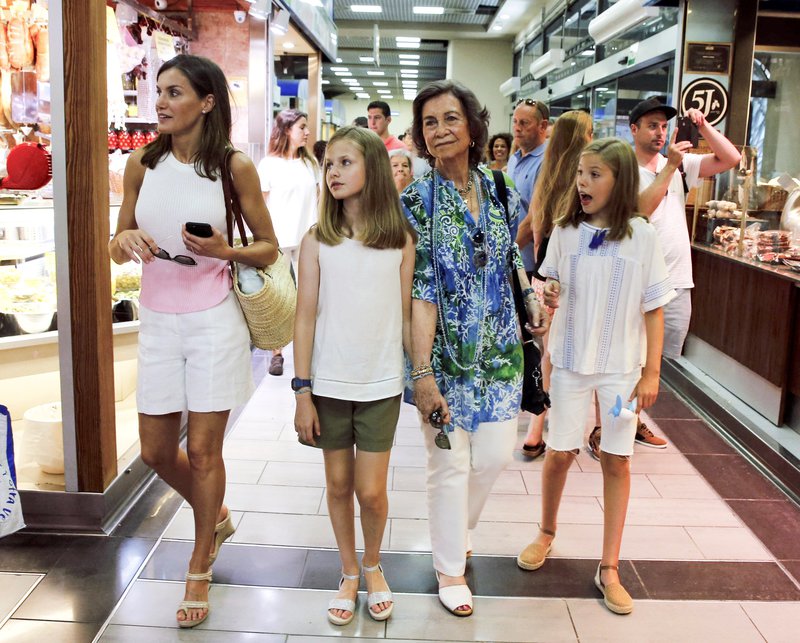The decline of the MONARCHIES
And it is incomprehensible that it IS defended by parties claiming to be on the left or simply democratic In Spain, it has even lost its surreal endowment of “by the Grace of God”
Those monarchies still remaining in Europe have little to do with the origins of the institution in the middle ages In democratic regimes such functions are unreasonable...
The monarchy today is a decadent institution which, without counting those Commonwealth countries which symbolically hold the wearer of the Crown of the United Kingdom as the Head of State, survives mainly in Europe and Asia, but also in Africa and Oceania. In Europe, it takes the form of parliamentary monarchies (the UK, the three Benelux countries, Norway, Sweden, Denmark and Spain), also in Japan, Bhutan, Samoa, Tonga and, with the benevolence of the mood of the monarch in particular, in Morocco and Jordan. We also find non-parliamentary monarchies in other Asian countries (Thailand, Malaysia, Cambodia and Brunei) and, despite the good relations that Western democracies maintain with these royal houses, the oil-rich absolutist theocracies of the Arabian peninsula. In Africa there are two: Swaziland and Lesotho, part of the Republic of South Africa.
If we ignore the execution of Charles I in 1649 during the English Civil War (1642-1651), which led to the abolition of the monarchy and the proclamation of an ephemeral republic, the first uprising in Europe against the monarchist institution was the French Revolution. Louis XVI was guillotined in 1793, but the regal institution received the strongest blow in the periods of WWI and WWII, with the disappearance of the crowns in Russia, Austria-Hungary and the Ottoman Empire and, progressively, after 1945, with the imposition of democratic or totalitarian regimes, or by referendum or abolition in Italy, Bulgaria, Greece and a few other minor kingdoms.
Those monarchies still remaining in Europe have little to do with the origins of the institution in the middle ages. Before those times, the struggle over the largely fragmented remains of the Roman Empire torn apart by invading hordes gave way to charismatic military commanders charged with defending their territories. Mostly, early monarchs were chosen among military of the same rank, but the principle of birthright was soon imposed at the expense of choice. In order to legitimise power, the king was given an aura of divine right under the auspices of the Church - and with it, the appearance of the Holy Roman Empire in the 10th century, with formal or symbolic submission to the Emperor - leaving us with a legacy of European dynasties with their corresponding churches: Belgium and Spain with Catholicism, the United Kingdom with Anglicanism (formally the monarch is the Head of the Church of England), the Netherlands with Protestantism and, before 1917, the Tsars with the Orthodox rite.
Defenders of the institution emphasise the role as a symbol of national unity against the centrifugal forces that threaten territorial division and consider the monarch as a referee. However, in democracies such functions are unreasonable because these powers and symbols can be assumed by a president of a republic, elected by the citizens, and, in any case, they correspond to the Parliament and the government, representatives of popular sovereignty. In this case, the monarch is relegated to a merely symbolic role.
It is difficult to understand that an institution with such democratic deficiencies can be defended and regarded as a representation of a state. And it is incomprehensible that it is defended by parties claiming to be on the left or simply democratic, since the office is hereditary - the birthright passed down through one family - which is obviously not in keeping with the principle of equality of all citizens. What is more, in the case of the Spanish monarchy, according to the Constitution male succession prevails over female, that is, despite the concept of equality, it would seem that women of the royal family are less equal than their male counterparts. In Spain, it has even lost its surreal endowment of “by the Grace of God”, since the reintroduction of the monarchy was by the grace of a dictator under the Law of Succession in 1947; the proclamation by the Spanish Parliament in 1969 of Juan Carlos de Borbón as Franco’s successor. It must stem from this original sin that so many monarchist politicians - and even the King himself - knew what was in store for them in the 2016 cup finals between Barça and Sevilla, where they were roundly booed as expected. They themselves wore green ties (in Spanish, VERDE is the acronym for Long Live the King of Spain) as a silent vindication of an institution that has no rhyme nor reason to exist these days, nor for the Socialists to defend it now.
history








